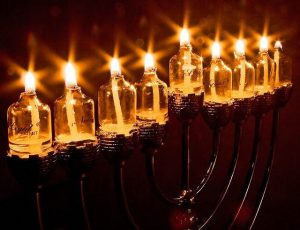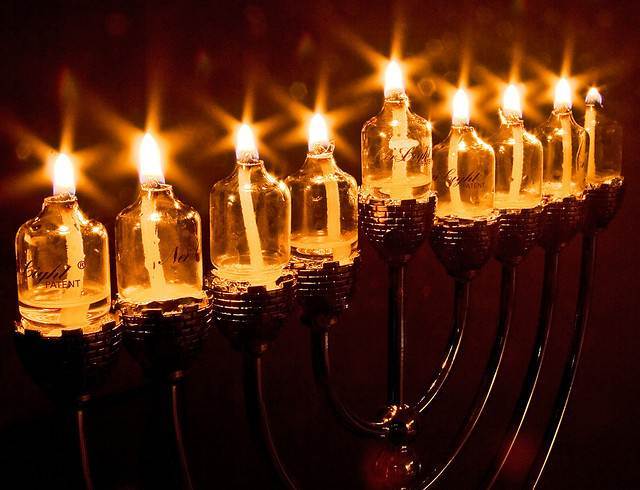 The holiday of Chanukah is often misunderstood. People imagine that it was a fight of military prowess and for political liberty. Yet neither of these is true. Chanukah, rather, tells us that we can accomplish miracles when we truly dedicate ourselves to G-d.
The holiday of Chanukah is often misunderstood. People imagine that it was a fight of military prowess and for political liberty. Yet neither of these is true. Chanukah, rather, tells us that we can accomplish miracles when we truly dedicate ourselves to G-d.
The Greeks of that time glorified the external. They celebrated physical prowess and great works of art, all in the service of their idols. Olympia was the site of the games, because it had a “sanctuary site” for their gods, and sculptors and poets would gather there during the Olympiads as well.
When they invaded Judea, they did not expel the Jews or enslave them. Rather, they attempted to eliminate Judaism, to make the Jews no different than other, idolatrous nations. They targeted three Jewish practices in particular, because each of these differentiated the Jews from other nations: Circumcision, Sabbath Observance, and Sanctification of the New Moon. The first two of these differentiate Jews physically and in their practices. The third is tied to the Jewish belief that we ourselves can impact the spiritual realms, by determining the times of our holidays.
Many Jews went along with the Greeks and even participated in idolatrous practices, but the Maccabees refused. And as we say in our prayers, G-d “gave the strong into the hands of the weak, the many to the few, the impure to the pure, the wicked to the righteous, those who provoke to those who involve themselves with Your Torah.”
Each of these phrases is important in our understanding of the true nature of Chanukah. The Jews of that time did not win political independence — they did not become the dominant force in a turbulent region, and continued as a vassal state. But they secured religious liberty and freedom to practice as Jews.
Physically, it denies logic to imagine that a small band of Jewish priests should be able to overcome the mighty, well-trained and well-armed Greek army. Spiritually, it also makes no sense. The entire world of that day was pagan, devoted to idolatrous gods. Rather than persisting with their unique ideas and study of Torah, the few, persecuted Jews should have succumbed to the popular ideas of the day.
And yet, of course, what happened is the very opposite. The Greeks and their gods are gone, while the Jewish ideals of ethical monotheism and morality have spread. On Chanukah, we celebrate the ability of small points of light to push back a world of darkness.





Your statement that “People imagine that it was a fight of military prowess and for political liberty. Yet neither of these is true” is only partially correct. The victory of the Maccabees over the Seleucids was the last major battle Jews won. From that time on and until the 18th Century when Jews were finally allowed to bear arms in the armies of the countries in which they resided, and despite the participation of Jews in those militaries and the wars that they fought, Jews have been considered cowards who, as Mark Twain once wrote in 1897, that the Jew “was charged with an unpatriotic disinclination to stand by the flag as a soldier.” It is only since the Israeli Wars of Independence that the world respects the fighting ability of Jews, and those of us who have served and fought proudly see ourselves as direct descendants of the Maccabees. And if you will recall, after World War II, Jewish servicemen and women echoed the Maccabees by restoring and purifying synagogues all over the world, allowing the Ner Tamid to once again burn. All of this was done as a result of their military victory over those forces who once again tried to wipe Jews and Judaism off the face of the earth.
Dear Rabbi
With all respect to our heroes, the few defeating the many, is it not Hashem Who gives us the victory? Who sent this one pebble to Goliath’s head? King David gave glory to Hashem!!
And so, though small, Israel will survive all the onslaughts and we will see the outcome of Isaiah ch.2!